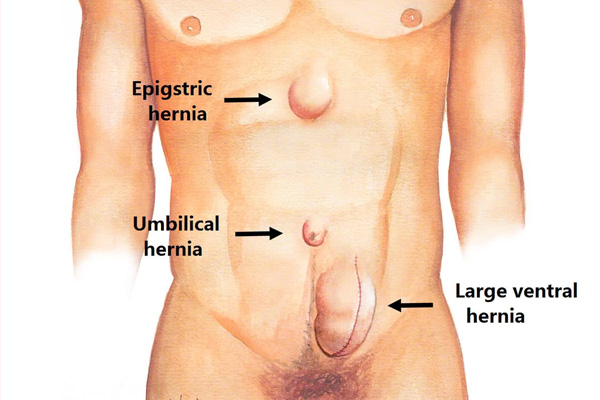What is Incisional Hernia?
Hernia is a common condition in which part of an internal organ or tissue bulges through a muscle. An incisional hernia is a type of hernia occurs when the intestines or fat from the abdomen bulge through abdominal wall at the site where an incision was made in a previous abdominal surgery.
